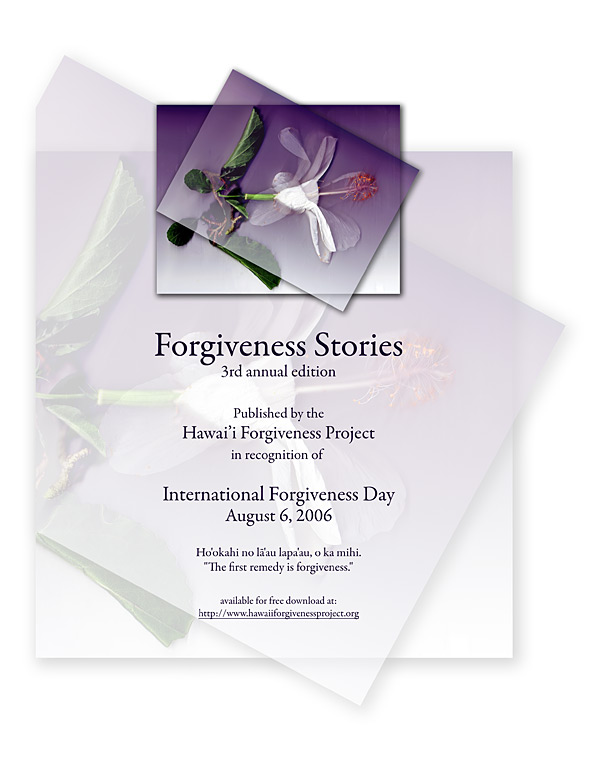
•
Table of Contents
click a title, to go
directly to that section

Introduction
In Hawai'i, we live in a land that radiates the spirit of Aloha to the world, a land whose original people practiced Ho'oponopono, a walk of balance in our islands. We seek a living re-connection between all the peoples of modern Hawai'i and the first Hawaiians, to their values and insights, and we will share that wisdom with the world.
We want to deeply understand and experience all the facets of the diamond of forgiveness. For the many world cultures that have come to our islands, forgiveness is one of the keys to a meaningful life. We envision a community that embraces forgiveness as a basic skill of life -- the ability to be renewed. Not to forget, but to deeply re-member.
We seek to weave forgiveness into the fabric of our personal, social, cultural, legal, economic, educational, and spiritual life. Our mission is to reach out to all the communities that make up Hawai'i today:
-
- * By establishing a forum for continued conversations and life experiences centered on forgiveness;
- * By providing a resource for information, ideas and tools, for workshops and special events on forgiveness;
- * By developing our personal deep knowledge of forgiveness, exploring its many roots in world religions, philosophies, history and the arts, and regularly practicing what we are learning; and
- * By honoring those among us who embody forgiveness in their life's path, and sharing their stories in creative ways.
|
For America and for the world, we will provide a true, heartfelt, and practical connection to traditional Hawaiian ideals, with forgiveness at the center.
The Editor
Michael North

Hawaiian prayer

Law of the Splintered Paddle
King Kamehameha's Story: Hawai'i
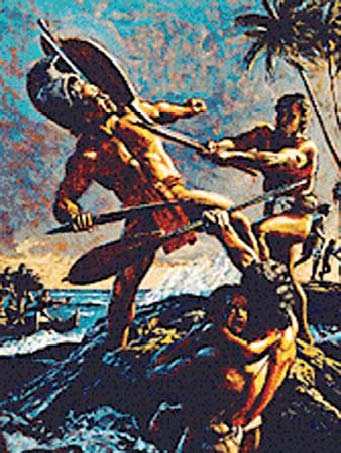
King Kamehameha I, the first ruler of all the Hawaiian Islands, lived before European influence became strong in the central Pacific, from 1758 to 1819.
He had a reputation for independence, strength, justice and compassion -combined with a fierce determination to unite the people of Hawaii.
Kamehameha's proclamation of Mamalahoe -- the "Law of the Splintered Paddle," came about in a unique way. His story of compassion and forgiveness has been passed down through nearly two centuries, from Kingdom to Republic to Territory to State, and is included today in the Constitution of the State of Hawaii.
The story goes like this:
The young royal warrior Kamehameha, headstrong with youth, was paddling a war canoe with his men near the shoreline of Ke'eau, in Puna, Maui. Seeking a place to rest, they came upon some commoners fishing on a beach, and attacked them. All escaped, except for two men who stayed behind to defend a man carrying a child on his back.
During the struggle, the young chief's foot caught in some lava rocks, and he was trapped there. One of the fishermen struck Kamehameha on the head with a paddle, and the paddle splintered. It was a blow that could have killed the young future King.
The man who hit him, in defending the child, allowed Kamehameha to survive. The young chief never forgot this act of forgiveness. This commoner taught Kamehameha that all human life is precious and deserves respect, that the strong must not mistreat the weak.
Kamehameha could have taken revenge on the fisherman, but he learned from the experience instead, and made forgiveness part of Hawaii's heritage, and its future.
Years later, King Kamehameha I proclaimed Mamalahoe, the Law of the Splintered Paddle. It provides that any old person, woman or child may "lie by the roadside in safety." This means that anyone who is weak is entitled to protection and assistance, and to respect, even from the King.
story suggested by Ramsay Taum, researched and written by the Hawai'i Forgiveness Project, from online sources at Kamehameha Schools, the University of Hawai'i Law School, and the State Constitution. For more, see http://www.hawaiiforgivenessproject.org/stories.htm#sources
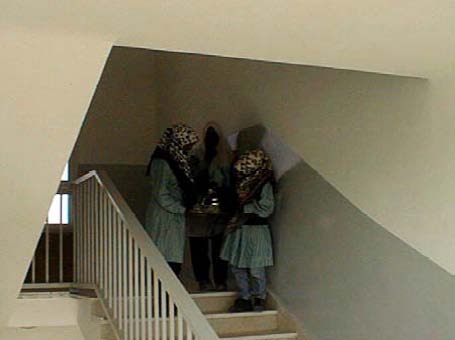
 A Gesture of Reconciliation A Gesture of Reconciliation
Israel, Palestinian Authority
Ahmed Al-Khatib was a 12-year-old Palestinian boy, playing in the streets of the West Bank town of Jenin, in June 2005. He was accidentally killed by Israeli troops, who mistook his toy gun for the real thing.
The grieving parents donated their son's organs for transplant, in a public bid to promote peace between Israel and the Palestinians.
Several thousand people, including hundreds of children from Ahmed Al-Khatib's school, flooded the streets of Jenin for his funeral, with many holding up photographs of other youngsters killed during the conflict.
Ablah Al-Khatib, the boy's mother, said, "We have no problem whether it is an Israeli or a Palestinian (who receives his organs) because it will give them life."
The boy's father, Ismail Al-Khatib, said the family decided to donate his son's organs out of a desire to answer violence with a concrete gesture of peace.
"I have taken this decision because I have a message for the world: That the Palestinian people want peace — for everyone," he said. He said the donated heart, lung, kidneys and liver would save Jewish lives. "I had an older brother who suffered from kidney failure and there were no transplants available. When the doctor told me that my boy was clinically dead, I remembered my brother and thought of ways to help."
The boy's organs did help save to save the lives of six people at Rambam Medical Center in Haifa. His heart was given to a 12-year-old girl; his liver was divided in two and given to two patients, a six-month old baby and a 56-year-old woman; his kidneys were given to a 5-year-old boy and his lungs were given to a 5-year-old boy and a 4-year-old girl.
Shots were fired at Israeli soldiers from the western part of the Jenin camp, and bullets hit one of their jeeps. Islamic Jihad and Fatah gunmen both participated in the exchange of fire, and teenagers threw rocks at the jeeps. Khatib was apparently not one of the boys who had been throwing rocks at the soldiers, but Israeli Army spokesmen showed photographs of the toy M-16 assault rifle, to demonstrate how real it looked.
"Despite the pain, they made a very courageous decision," the boy's uncle, Jamal Khatib, said. "This is part of our culture. As Muslims," he said, "we can tell the world that we are not terrorists."
"Israeli children are our children," he added. "We are doing this because we believe in peace."
sources: Arab News, Ha'aretz, Voice of America
 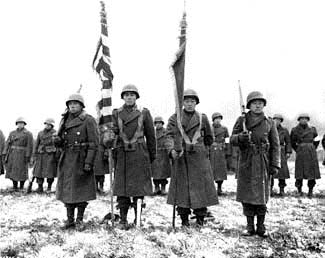
Courage, Loyalty, Compassion
Hawai'i in World War II
This is the little-known story of the US 442nd Regimental Combat Team (RCT) and the 100th Infantry Battalion.
This team of courageous Japanese-Americans was subjected to hatred, degradation, insults and loss of civil rights because of their race. They rose above the racism, forgave those who treated them unfairly and served their country with the highest valor and love.
When the United States naval base at Pearl Harbor, Hawaii was attacked by Japan in 1941, all Americans eligible for military duty were called upon to fight -- except Japanese Americans. They were categorized as non-draftable; many of them and their families were placed into concentration camps.
But in 1943, the government reversed this decision and announced the formation of the 442nd Infantry Regimental Combat Team, initially consisting of 4500 Japanese American volunteers from the mainland United States and the Hawaiian Islands. Despite the racism of those days, they volunteered because they believed that, if there was to be any future for Japanese in the United States, they had to demonstrate their patriotism by fighting for their country.
Initially, the young men of the 442nd had to prove their loyalty to other American soldiers and to their commanders. And they showed immense courage in liberating the small town of Bruyeres in Southern France; they rescued the "Lost Battalion" (141st), a large group of Texas soldiers trapped behind enemy lines who were being relentlessly encircled by the Germans.
They were also key to the liberation of the hellish concentration camp at Dachau; their memories, accounts and photos form an important part of the historical record.
The stories of their heroism spread throughout the military as the war ended, until the 442nd became the most-decorated unit in United States history.
18,000 total awards were bestowed upon this relatively small group of soldiers, including 9,500 Purple Hearts, 52 Distinguished Service Crosses, Seven Distinguished Unit Citations, and 21 Congressional Medals of Honor. Many of these American heroes became pillars of postwar Hawaii, helping the nation to statehood and becoming key civic, business, educational and political leaders. Senator Daniel Inouye, one of the longest-serving United States Senators and the most senior Armed Services chair, was a decorated member of the 442nd. Senator Inouye's right arm was shattered by a grenade while successfully destroying three German machine gun nests; he was one of the recipients of the Congressional Medal of Honor in a belated recognition bestowed by President Clinton in 2000.
The "No Japs Allowed" signs that the 442nd returned after the war have been replaced today by respect and honor in the modern State of Hawaii. These young men surmounted the abuse of themselves and their families and, by their dignity and forgiveness, exemplify true American heroism.
Their ranks have thinned, and the story of the 442nd remains relatively obscure to most people, even at home in Hawaii. The Forgiveness Project honored several living members of the 442nd Regimental Combat Team and the 100th Infantry Battalion at its meetings in Honolulu, August 1, 2004.
Here are some key links to learn more:
history: http://www.katonk.com/442nd/232nd.html
links, bibliography: http://www.katonk.com/442nd/Bibli/bibli.html
more: http://library.thinkquest.org/CR0210341/442nd/splash442nd.htm?tqskip1=1
this story, more photos online at http://www.hawaiiforgivenessproject.org/442nd.htm
 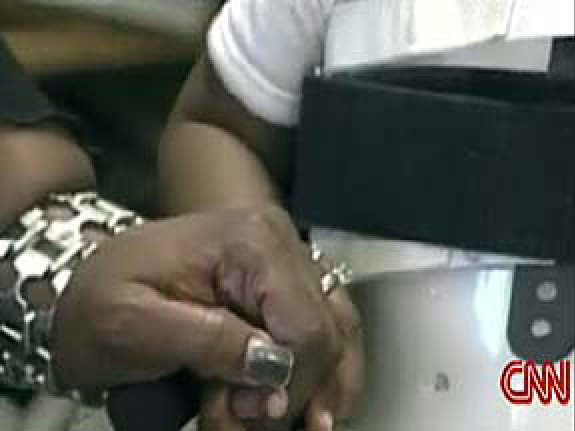
Pain and Forgiveness
Boston, Massachusetts
It was April, 2006 -- a courtroom in Boston, Massachusetts.
A five-year old girl, paralyzed in a wheelchair, sat and looked directly at the man who had just pleaded guilty to firing the shot that paralyzed her.
At first, Kai Leigh Harriott broke down, crying harder than she ever had since the night nearly three years earlier, when Anthony Warren fired three rounds at the house where she was sitting on a porch.
After a sip of water and some consoling from her mother, Kai spoke.
"What you done to me was wrong," she said to the man seated just 10 feet away. "But I still forgive him."
Prosecutors said Warren had an argument with people who lived in the same house where Kai lived with her family. They left, then Warren returned and fired three rounds at the house. One of the bullets hit Kai --then 3 --as she sat on a third-floor porch with an older sister. The bullet shattered her spine, permanently paralyzing her from the chest down.
After his guilty plea, the girl, her mother and two sisters gave emotional statements to the judge, who sentenced Warren to 13 to 15 years in prison and five years' probation.
Sources: Associated Press, CNN
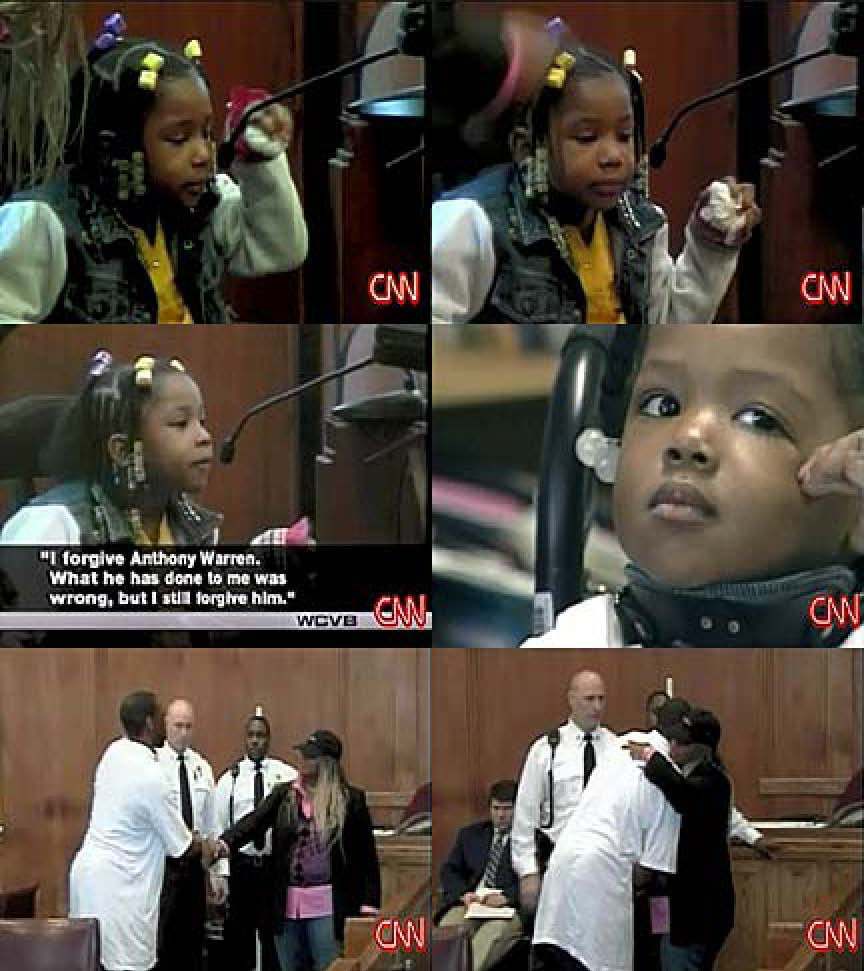
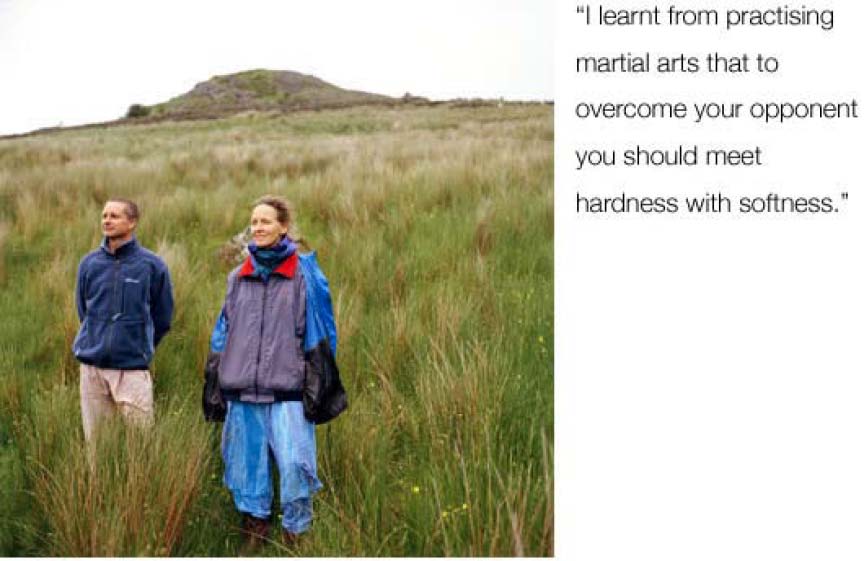

Camilla Carr & Jon James: Chechnya
In April 1997, Camilla Carr, 45, and her boyfriend, Jon James, 43, went to Chechnya to set up a rehabilitation centre for traumatised war-children. Three months later they were taken hostage by Chechnyan rebels. Their ordeal lasted 14 months, during which Camilla was repeatedly raped by one of her jailers.
Camilla Carr
Rape is a terrible violation of a human being. I will never forgive the act, yet I can forgive the man who raped me; I can feel compassion for him because I understand the desperate place he was coming from.
That's not to say I condone what our captors did to us (the physical and psychological abuse was appalling), and if I met them now I'd want to ask all of them, "Did you have any idea how much you were harming us?" But I still understand the desperation that caused them to do the things they did.
As soon as we were taken hostage we decided to take the line of least resistance, because our four captors were so clearly traumatised by the war. If we'd shown anger or sadness they could have reacted with violence.
After several weeks in captivity one of them -- an ignorant and wounded person who we named Paunch -- took the opportunity to rape me. The only way I could get through this horror was by thinking to myself, "You can never touch the essence of me -- my body is only part of who I am."
He raped me many times, but mostly I was able to cling on to this detached state of being. He always did it when he was alone and I didn't dare tell the other captors in case it gave them the idea of gang rape. This went on until I got herpes, which gave me the strength to say no. Paunch asked me to explain why. With a dictionary I shakily pointed out, "No sex, no violence". I couldn't take any more. He said he just wanted to be my friend! In his own way he was apologising. He stopped raping me and instead he would talk about his dreams.
We were released in September 1998. Initially I seemed to be doing well. We were basking in the euphoria of freedom and love from our family and friends. Then two months later I collapsed. I couldn't stop crying and had no energy. This lasted a few weeks, but it wasn't until 2001, when Jon and I moved to Wales, that I found the space and silence to let go and surrender to weakness and vulnerability. Only this way could my nervous system finally heal.
Some of our Chechnyan friends can't understand how we can forgive. They feel tarnished with the guilt of their community. I tell them that I believe forgiveness begins with understanding, but you have to work through layers to obtain it. First you have to deal with anger, then with tears, and only once you reach the tears are you on the road to finding peace of mind.
From The Forgiveness Project website http://www.theforgivenessproject.com/stories/
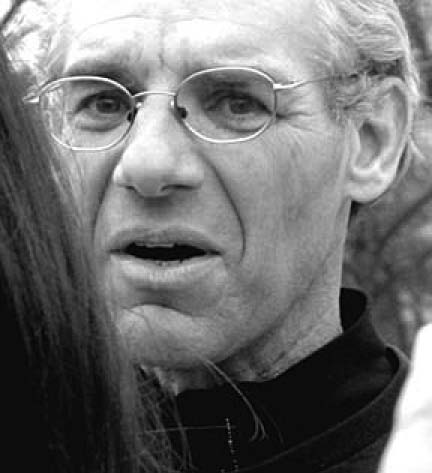

Revenge Breeds Revenge
A Father Grieves his son, killed in Iraq
Michael Berg is the father of Nicholas Berg, the young businessman who was brutally beheaded in Iraq in May of 2004.
When the No. 1 wanted man in Iraq, Abu Musab al-Zarqawi, was killed in a U.S. airstrike, Michael Berg talked about the man who had publicly beheaded his son.
He said, "My reaction is I'm sorry whenever any human being dies. Zarqawi is a human being. He has a family who are reacting just as my family reacted when Nick was killed, and I feel bad for that.
"I feel doubly bad, though, because Zarqawi is also a political figure, and his death will re-ignite yet another wave of revenge, and revenge is something that I do not follow, that I do want ask for, that I do not wish for against anybody. And it can't end the cycle. As long as people use violence to combat violence, we will always have violence."
A reporter expressed surprise at this, since Berg's son was killed in such a horrible, and brutal and public way.
Berg added, "Well, you shouldn't be surprised, because I have never indicated anything but forgiveness and peace in any interview on the air. How can a human being be glad that another human being is dead?
"When Nick was killed, I felt that I had nothing left to lose. I'm a pacifist, so I wasn't going out murdering people. But I was not a risk-taking person, and yet now I've done things that have endangered me tremendously. I've been shot at. I've been showed horrible pictures. I've been called all kinds of names and threatened by all kinds of people, and yet I feel that I have nothing left to lose, so I do those things."
source: CNN
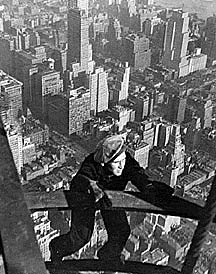 
Enemies, Friends
Steven McDonald: New York City
When New York City policeman Steven McDonald stopped to question three youths in Central Park one day in 1986, he was shot and paralyzed from the neck down. Steve had been married less than a year, and his wife was two months pregnant.
Steven and his attacker, Shavod Jones, could not have been more different. Steven was white; Shavod was black. Steven came from the upper-middle class suburbs of Nassau County; Shavod from a Harlem housing project. Their brief encounter might have ended right there. But Steven wouldn't let it. Knowing that his attacker had just altered the course of both of their lives, he felt an uncanny connection to him, and began to write to him:
"I was angry at him, but I was also puzzled, because I found I couldn't hate him. More often than not I felt sorry for him. I wanted him to turn his life to helping and not hurting people. I wanted him to find peace and purpose in his life. That's why I forgave him. It was a way of moving on, a way of putting the terrible accident behind me.
"Shavod didn't answer Steven's letters at first, and when he finally did, the exchange fizzled out because Steven declined his request for help in getting parole. Then, in late 1995, only three days after his release from prison, Shavod was killed in a motorcycle accident. But Steven has never regretted reaching out to him.
"I was a badge to that kid, a uniform representing the government. I was the system that let landlords charge rent for squalid apartments in broken-down tenements; I was the city agency that fixed up poor neighborhoods and drove the residents out, through gentrification, regardless of whether they were law-abiding solid citizens, or pushers and criminals; I was the Irish cop who showed up at a domestic dispute and left without doing anything, because no law had been broken.
"To Shavod Jones, I was the enemy. He didn't see me as a person, as a man with loved ones, as a husband and father-to-be. He'd bought into all the stereotypes of his community: the police are racist, they'll turn violent, so arm yourself against them. No, I couldn't blame Jones. Society -- his family, the social agencies responsible for him, the people who'd made it impossible for his parents to be together -- had failed him way before he had met me in Central Park..."
When visiting Steven in his Long Island home, I am always struck by the extent of his incapacitation. Life in a wheelchair is hard enough for an elderly person to accept, but to be plucked out of an active, fun-loving life at the age of twenty-nine is devastating. Add to that a tracheostomy to breathe through, a personal nurse to hover over you twenty-four hours a day, seven days a week -- and a son you have never been able to hug, let alone play ball with -- and you have Steven McDonald.
Still, I have never sensed any anger or bitterness. Steven speaks quietly, almost timidly, but his words reveal the pillar of his strength: a forgiving spirit that prevents him from wallowing in self-pity and allows him to see his confinement in a positive light. A speaker at elementary schools and high schools throughout New York, Steven has given meaning to his suffering by using it to teach others about the importance of forgiving.
"Of course, I have my ups and downs. Some days, when I am not feeling very well, I can get angry. I get depressed. There have been times when I even felt like killing myself. But I have come to realize that anger is a wasted emotion..."
Though Steven's story is remarkable in many ways, it is his honesty about his ups and downs that I find most significant. Steven chose to forgive rather quickly, as did many others whose stories we have already examined. Like many of them, he says he forgave so as to be able to move on, to heal, to get on with life. But Steven also says that no matter how sincerely you decide to forgive, your decision must be reaffirmed every day. And he admits that, far from being a magical key to serenity and relief, the act of forgiving carries its own measure of anguish and pain. To borrow from Dostoevsky's oft-quoted reminder about love, forgiveness in action is a "harsh and dreadful thing" compared to forgiveness in dreams.
Reprinted from Why Forgive? -Ebook by Johann Christoph Arnold www.bruderhof.com
Copyright 2003 by The Bruderhof Foundation, Inc. Used with permission.
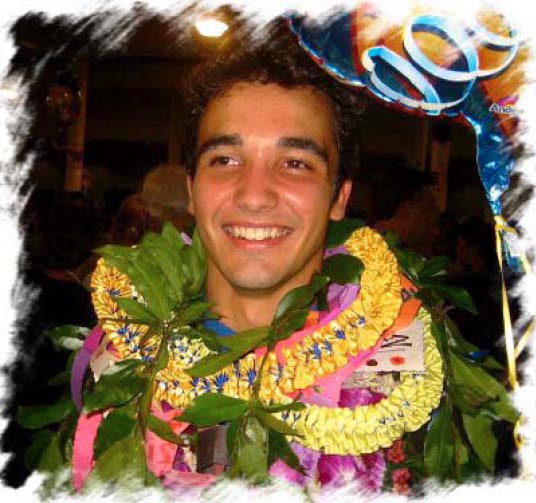
 Heartbreak Heartbreak
Chris Spezzano: Hawai'i
Recounted by Lency Spezzano
I witnessed one of my son Christopher's first heartbreaks when he was about three years old.
He loved one of my friends, and he courted her with great devotion. When she visited, he would take her by the hand and romantically lead her into his bedroom to play. She was the apple of his eye, his sunshine, his Girlfriend.
One evening we went to her home for a dinner party. Children were running about the house excitedly when she decided to get everyone seated for dinner. As my son trotted past her with a prized toy in his hand she stopped him, removed the toy from his grasp and ordered him to sit down at the children's table. She was stressed by the pressure of cooking a dinner and pulling off a successful party, and her attention was focused on her situation, not on Christopher.
From across the room I could see my son's face as it shattered. His Beloved had treated him just like another kid! He would never have treated her so indifferently, without consideration for her feelings. The realization dawned in his mind: she was not in love with him. She did not feel for him what he felt for her.
This understanding hit him and with such a wallop of shock and pain he screamed, and then looked wildly about for me. He ran to me in horror, the emotion too strong for him to talk. My heart went to him, and I felt a pain so sharp and clear, it was like his heart had been opened with a butcher's cleaver. He clung to me as I carried him to another room.
Small as the incident was, I could feel its devastating effect. All I could do was hold him, feel with him, and say, "I know, I know." Within a couple of minutes enough of the pain had burned away for him to be able to speak.
"Mommy, she made a mistake!" he gasped. "She needs a Time Out!" As he pictured her sitting in her room by herself, taking a Time Out, he said with some satisfaction, "Then she would cry."
Within moments he brightened, purity and openness returning to his face. "ButIwould save her!" he exclaimed as he jumped from my lap to run and join the others. The heartbreak was over, just like that.
I was floored by the beauty of the process I had witnessed. By simply allowing the natural completion of an emotional experience, my son was not only saved from a broken heart, he had benefited from the experience of forgiving a friend when she made a mistake. He actually had a better self-image after the experience, and he had tasted the love and lies at the end of every heartbreak.
By the time most of us reach adulthood, we are full of broken hearts. Some of these broken hearts are easy to remember; others have slipped into the subconscious mind. There, forgotten pain and loss lie hidden, seemingly unimportant.
In truth, these heartbreaks are constantly affecting us. They determine how we see the world; they make decisions for us; they control our relationships. But if we experience our emotions fully at the times we create them, those feelings move through us without causing any damage. We emerge stronger and wiser. This is how, and perhaps why, we were made.
Recounted by Lency Spezzano From http://www.gaia-mind.com


The Forgiveness Party
Chicago, Illinois
Nine year old Bess Lyn Sannino was angry to find her house had been burglarized. Seventeen dollars in allowance money, her Valentine's Day candy, and a tape player were gone. The front door had been pelted with raw eggs. She felt sure the burglars were several young teenagers from her neighborhood who'd earlier sprayed graffiti on the garage.
Her mother, a Quaker, had doubts about calling the police. She called the father of one of the young suspects, who encouraged her to work with police to help this become a lesson for the teens.
A compassionate police officer took a week to locate the parents of all four suspects. One mother worked two jobs and wasn't home until after 11 pm. A father had been hospitalized for erratic, potentially violent behavior. These were stressed, troubled families.
In the conversations that followed, all the parents and the police officer agreed that no permanent record of the incident would be kept if the offenders would make up for their crime in more meaningful ways. In addition to curfews and other restrictions, creative forms of restitution were agreed to. One of the perpetrators wrote an essay on integrity and came to the house to read it to Bess. Others came and cleaned off the front door, did yard work and chores around the house. Everything that was taken was returned.
But Bess found she needed healing on a deeper level. With her mother's support, Bess hosted a Forgiveness Party for the young people who'd broken into her house. She made a piñata and decorated her house and yard. There was lots of music coming from the formerly stolen tape player. Not only did the young people come, so did their parents and siblings. It became quite a celebration. Anger and shame were transformed into joy and community. Healing happened for everyone.
Bess related this story in a very matter-of-fact tone. To her, it seemed like the most ordinary thing, to throw a party for people who came uninvited into her home to vandalize and steal from her. She was surprised that so many adults were impressed by her idea.
source: http://www.co-intelligence.org/S-forgivenessparty.html
Adapted from "Nonviolence in the Arena: The Forgiveness Party" by Jo Clare Hartsig and Walter Wink, in Fellowship, July/August 1995, p. 31.
 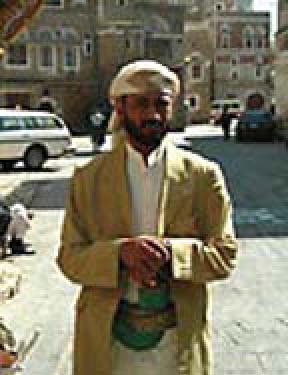
Militant poetry
Art and Tolerance in Yemen
Amin al-Mashreqi is taking on Al Qaeda --with his poetry.
As the dusk call to prayer fades in Sanaa, Yemen, Amin al- Mashreqi glances at the expectant faces surrounding him and begins to read from his slim, handwritten book of verse that is helping to bring a measure of peace to this mountainous Arab country:
O, you who kidnap our guests,
Your house will refuse you,
These violations are against Islam
Crammed into a mud-brick shop, his audience, some with their hands resting on their gold-trimmed daggers, listen to his verse denouncing violence and Islamic militancy. When he finishes, there is silence. Then the room erupts in applause.
"Other countries fight terrorism with guns and bombs, but in Yemen we use poetry," says Mr. Mashreqi later. "Through my poetry I can convince people of the need for peace who would never be convinced by laws or by force."
For years Yemen has been known as a breeding ground for extremism. It is the ancestral homeland of Osama bin Laden and where Al Qaeda bombed the USS Cole in 2000. But today this country is quietly winning a reputation for using unorthodox tactics to take on Islamic militancy.
"Yemen has turned to poets because they are able to speak to diverse groups of people who the literati and the elite cannot reach," explains W. Flagg Miller, professor of Anthropology and Religious Studies at the University of Wisconsin who has studied Yemeni poetry for about 20 years.
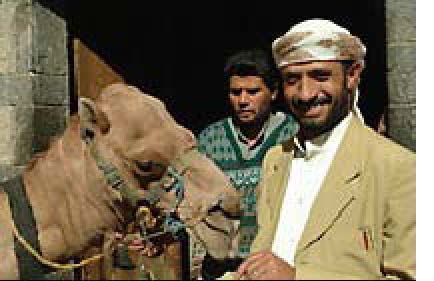
"There is a long tradition of leaders turning to poets right across the Arab world," explains Dr. Miller. "The prophet Muhammad himself worked with a poet, Hassan ibn Thabit, to spread the word and compose poetry against other poets and tribes who refused to acknowledge Islam."
After seeing the devastation and violence of the USS Cole bombing, the militant Mashreqi was troubled . His friend, Sanabani, saw him as a man transformed.
"He came back with the most beautiful poetry I have ever seen," says Sanabani, recalling his amazement at the poet's new verses that now condemned violence and promoted peace and tolerance.
Sanabani and Mashreqi realized that the historic respect accorded to poets gives them a unique power to win over illiterate tribesmen in remote areas where villagers are traditionally skeptical of all that the government has to say and offer.
"The Yemeni people are very sensitive to poetry - especially traditional poetry like this," says Mashreqi. "If poetry contains the right ideas and is used in the right context, then people will respond to it because this is heart of their culture."
O men of arms, why do you love injustice?
You must live in law and order
Get up, wake up, or be forever regretful,
Don't be infamous among the nations
adapted from an article by James Brandon, Correspondent of The Christian Science Monitor May, 2006
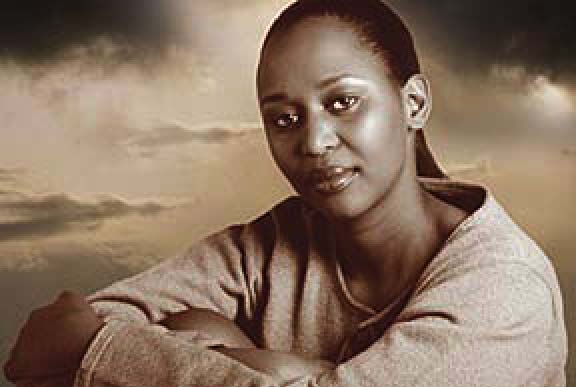

Transcendence and Genocide
Immaculée, Rwanda
Imagine being cramped in a tiny room with seven other people, huddled in silence for more than three months while cold-blooded killers lurk nearby, calling your name.
"There were many voices, many killers. I could see them in my mind: my former friends and neighbors, who had always greeted me with love and kindness, moving through the house carrying spears and machetes and calling my name.
"I have killed 399 cockroaches," they chanted. "'Immaculée will make 400. It's a good number to kill."
The Rwandan holocaust claimed the lives of nearly a million people. One brave and remarkable woman—Immaculée Ilibagiza—survived the slaughter by finding shelter in the confines of a small bathroom. She tells a triumphant story about faith, forgiveness, and endurance during one of modern time's most horrific events.
Her journey of survival is described in her book, Left to Tell: Discovering God Amidst the Rwandan Holocaust. Details at http://www.lefttotell.com
"I couldn't imagine how all of us could possible fit in this space, but the pastor herded us through the door and packed us in tight. "While you're in here, you must be absolutely quiet, and I mean silent," he said. "If you make any noise, you will die."
"Minutes felt like hours as Immaculée sat silently, staring in the sad, frightened, nervous and uncertain faces of the other women. And this was just the first day of what would feel like an eternity of confinement from the genocide.
"The pastor's repeated warnings to be quiet had burned into us. We sat in an uncomfortable heap, too afraid to adjust our positions or to even breathe too heavily. We waited for the gray light of dawn to fill the room, then carefully pried ourselves apart to take turns standing and stretching.
"This ritual would go one for many more hours, days, and even months, as these women would spend 91 days huddled in silence. Through a small window, Immaculée and her terrified companions listened with disbelief to the accounts of what was going on just inches away from them ...the slaughter of their families and the bloody massacre of their country.
"I stood on my tiptoes and peered out the window through a little hole in the curtain. The other ladies grabbed at me, trying to pull me down. "Get down! They're looking for us! Get down before they see you!"
"I ignored them, knocking their hands away and peering through the hole. I immediately regretted my decision because I was petrified by what I saw. It wasn't soldiers who were chanting chilling songs of genocide or doing dances of death, nor was it the trained militiamen who had been tormenting us for days. No, these were my neighbors, people I'd grown up and gone to school with. Some had even been to our house for dinner.
Immaculée transformed her life during this horrific event and even found the profound faith to forgive her family's murderers. "Immaculée's journey is a story of a love for God that was so strong that hatred and revenge were forced to dissolve in its presence," says Dr. Wayne W. Dyer, world-renowned inspirational speaker and best-selling author.
From reviews of "Left to Tell", 2006, Hay House, by Immaculée Ilibagiza;
http://www.lefttotell.com/book/
 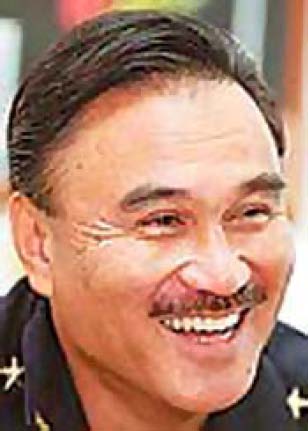
Police Chief Grants Mercy
Michael Nakamura, Hawai'i
The driver who ran over former Honolulu Police Chief Mike Nakamura did not have to serve prison time -- because of Nakamura's message of mercy to the court.
Anthony Pearce II was charged with driving without a license and fleeing an accident in Mililani, O'ahu in 2004. His legs crushed, Chief Nakamura's ability to serve his community was over. However, he didn't take his anger out on Pearce, who hit him in his wheelchair in a crosswalk.
"I don't have any negative feelings against the man. I don't think it was anything personal," Nakamura said.
"There is not a day that goes by that I don't think about the chief and his family," Pearce said. Pearce went to the Nakamura family, confessed and personally apologized. "I hope that I have been able to bring peace and closure to Chief Nakamura's family."
In the end, Pearce's fate was in the hands of the Nakamura family, whose forgiveness meant that Pearce was able to avoid jail. The judge gave Pearce five years probation, community service and a $500 fine.
Soon after the sentencing, Chief Nakamura died of his injuries. He is recognized by the Hawaii Forgiveness Project as a Hero of Forgiveness, 2006.
Written by the Forgiveness Project, based on local news accounts
 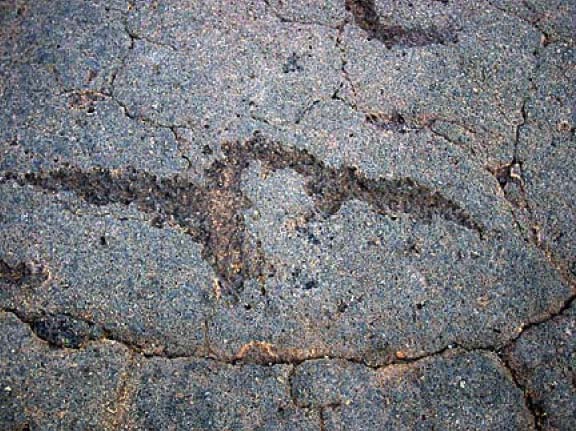
Hawaiian petroglyphs at Waikoloa, Hawai'i
Forgiveness Links
Publications
Forgiveness Stories
© Hawaii Forgiveness Project, 2006
http://www.hawaiiforgivenessproject.org
this book, and condensed versions,
may be downloaded at no charge here:
http://www.hawaiiforgivenessproject.org/stories/
permission to reprint and redistribute this document,
in print or digital form, is freely granted to all,
provided it is unaltered
book and website produced with the assistance of:
Cades-Schutte, Honolulu, HI
http://www.cades.com
Greenstar, Haleiwa, HI
http://www.greenstar.org
Scott Foster & Associates, Waialua, HI
http://www.scottfoster.org
thanks to
Paula Keawe , Malou Mallison, Ramsay Taum,
Lency Spezzano, Roger Epstein, Helen Rauer, Sam Cox

|
